Moderna announced on Thursday it plans to spend up to $500 million building a vaccine factory in Africa, capable of producing up to 500 million doses of mRNA vaccines a year – including, but not limited to, coronavirus vaccines.
“While we are still working to increase capacity in our current network to deliver vaccines for the ongoing pandemic in 2022, we believe it is important to invest in the future. We expect to manufacture our COVID-19 vaccine as well as additional products within our mRNA vaccine portfolio at this facility,” said Moderna CEO Stephane Bancel.
Moderna’s statement indicated the country and site of the factory have not been chosen yet, but the process for selecting a site would begin “soon.”
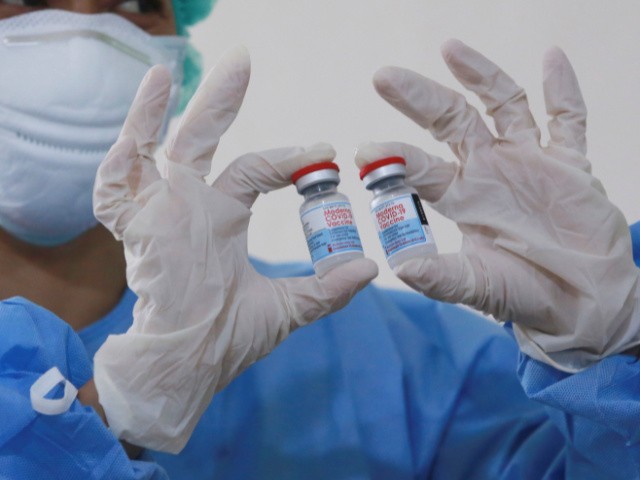
A health worker shows vials of the Moderna coronavirus vaccines before administering them to colleagues who have been previously vaccinated with the Sinovac vaccine in North Sumatra, Indonesia, August 4, 2021. (AP Photo/Binsar Bakkara)
Unnamed health experts told Reuters that South Africa, Rwanda, and Senegal were likely choices. South African officials were evidently unaware of Moderna’s plans until the public announcement was made.
“Moderna and its partners have ramped up capacity worldwide and have supplied more than 500 million doses of Moderna’s COVID-19 vaccine to date,” the company said. “As recently announced, there are several efforts to continue increasing capacity at a significant pace. This announcement is a new investment aimed at adding a manufacturing site in Africa to Moderna’s expanding global network.”
Africa Centers for Disease Control and Prevention director John Nkengasong told Reuters on Thursday the announcement came as a surprise to him, as he was not consulted by Moderna before it made its decision.
Nkengasong added that more vaccine capacity for Africa was welcome, but doubted the Moderna plant would come online quickly enough to have a major impact on Africa’s battle with the coronavirus. He suggested Moderna’s new plant could be helpful to the Partnerships for African Vaccine Manufacturing initiative launched by the African Union and Africa CDC in April.
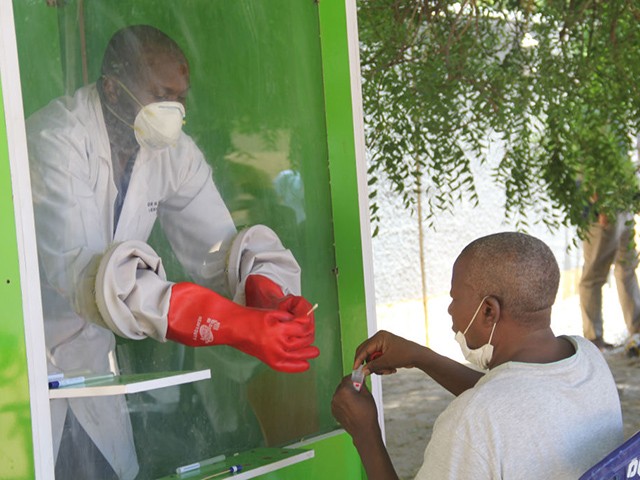
A patient who is suspected of suffering from COVID-19 coronavirus undergoes testing at the University of Maiduguri Teaching Hospital isolation center on May 10, 2020, Borno State, Nigeria. (Audu Marte/AFP via Getty Images)
A World Health Organization (W.H.O.) vaccine regulation officer likewise told Reuters that Moderna’s proposed vaccine plant could “help with diseases of public health interest other than the coronavirus and which had not yet received research and development support.”
On Wednesday, W.H.O. granted its first approval of a malaria vaccine, developed by GlaxoSmithKline and currently proving successful in a pilot program conducted in Ghana, Kenya, and Malawi.
The Financial Times (FT) suggested Moderna’s somewhat surprising announcement was made in response to criticism that vaccine manufacturers are not doing enough to inoculate the development world, and perhaps to protect themselves against proposals that would “force them to waive intellectual property rights to spur expanded use of their technologies.”
FT noted Moderna’s rival and Pfizer’s partner BioNTech recently announced it would establish a facility for manufacturing mRNA vaccines in Africa, possibly in Senegal or Rwanda. Moderna, however, would become “the first company to announce plans for a wholly-owned mRNA facility in the region that would produce the active ingredient in the vaccine.”
Bloomberg News quoted Bancel saying the proposed African facility would be comparable to the primary Moderna plant in Massachusetts, “owned and operated by Moderna but staffed mostly with local workers.”
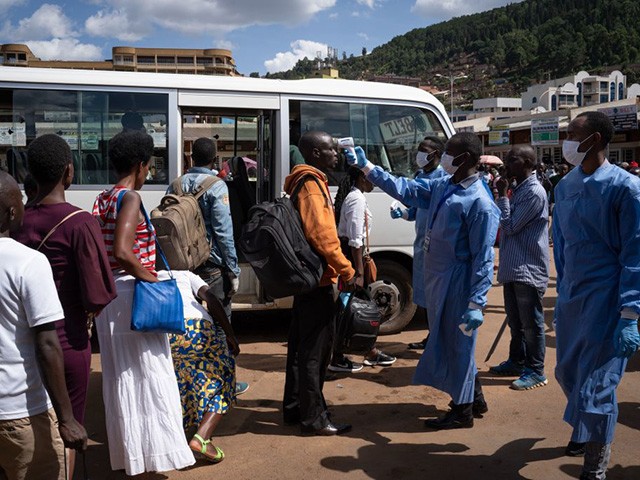
A staff of the Rwanda Biomedical Center (RBC) screens passengers at a bus station after the government suspended all unnecessary movements for two weeks to curb the spread of the coronavirus in Kigali, Rwanda, on March 22, 2020. (Simon Wohlfahrt/AFP via Getty Images)
“We played a lot of scenarios over the last couple of months and decided we should do something big in Africa. The only way to do it right, if you take a 5-to-10-year view, was to build our own plant like we’ve done in America, so that’s exactly the model,” he said.
Bancel said in this interview that five African countries were under consideration, but did not name them.
The Washington Post observed that Moderna’s announcement came after “tensions between the Biden administration and Moderna boiled over in the last week,” including a “contentious” meeting on Friday where the administration reportedly demanded a billion doses of vaccine for developing nations by the end of next year.
“For months, the U.S. government has pleaded with Moderna to boost its domestic and international production so it can ramp up donations to low- and middle-income countries,” the Washington Post said. “But in two meetings during the last week, Biden administration officials have grown exasperated over the biotechnology company’s refusal to commit to doing so.”
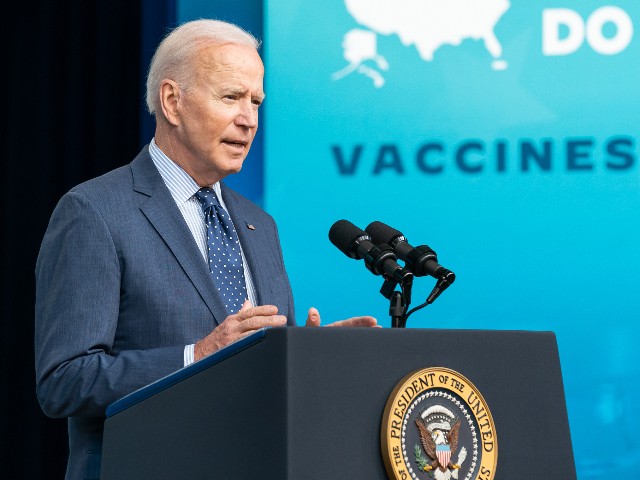
President Joe Biden, joined by Vice President Kamala Harris, delivers remarks on the COVID-19 National Month of Action on Wednesday, June 2, 2021, in the South Court Auditorium in the Eisenhower Executive Office Building at the White House. (Official White House Photo by Adam Schultz)
According to the Washington Post’s sources, the Biden administration is “frustrated” and “exasperated” with Moderna because the company received billions in government funding to develop its vaccine, along with assistance from the National Institute of Allergy and Infectious Diseases, but Moderna has been slow to respond to government demands.
The administration is also evidently resentful of how much money Moderna executives have been making from coronavirus vaccines, as the Washington Post made a point of mentioning three of them just became billionaires and joined the Forbes list of the 400 richest Americans.
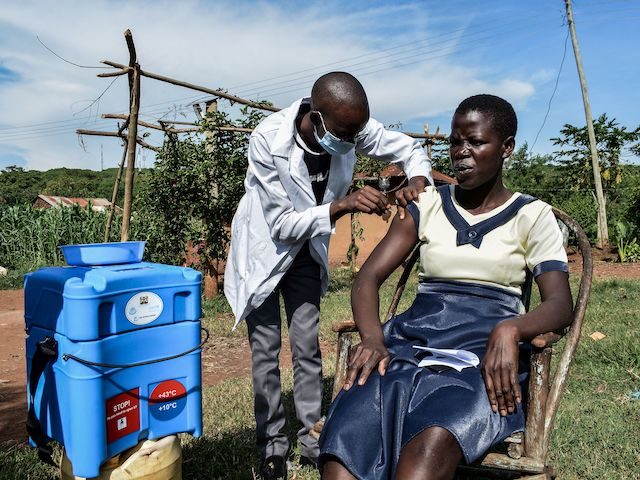
COMMENTS
Please let us know if you're having issues with commenting.